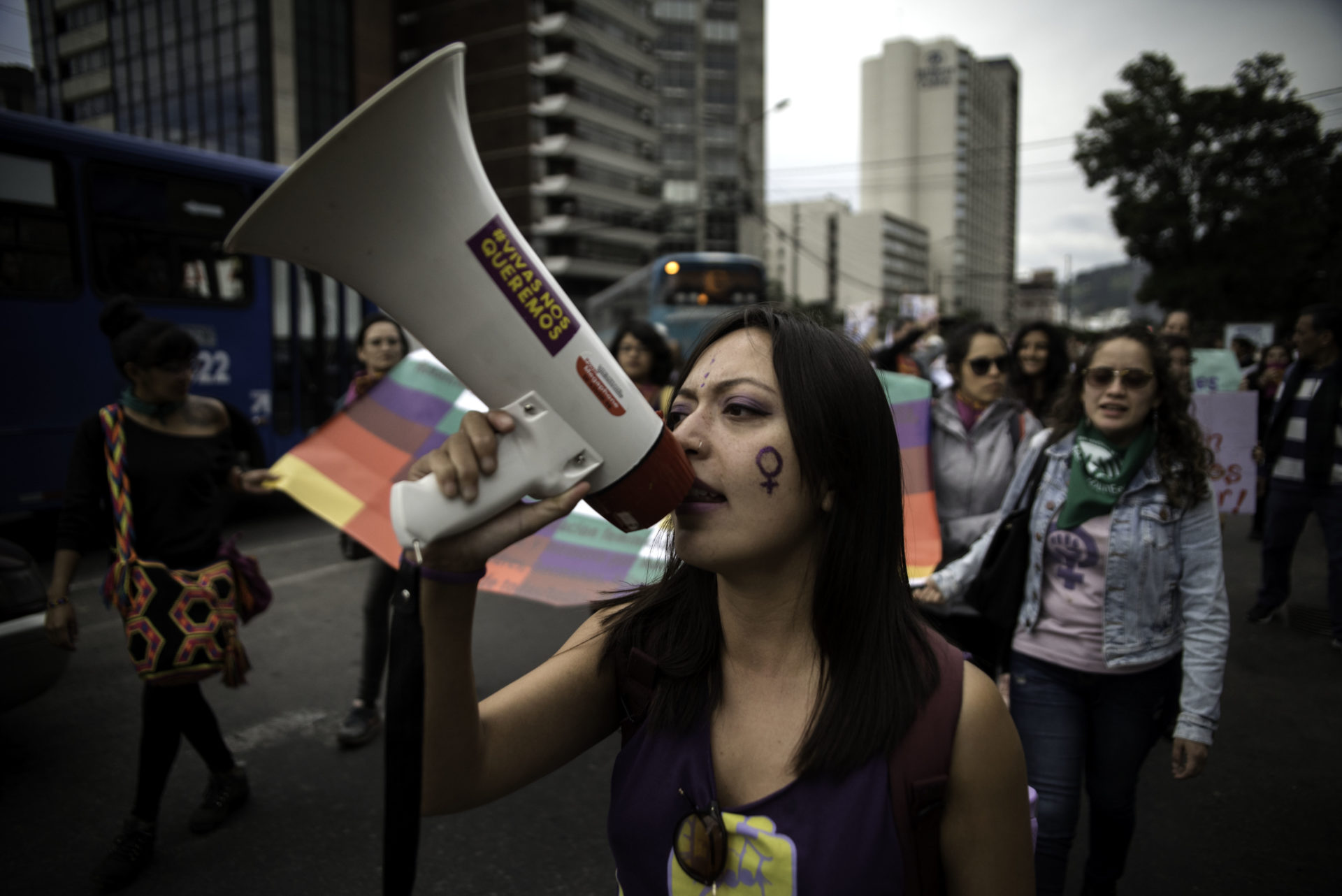Support Abortion Access on International Safe Abortion Day
The majority of Americans believe people should have a say over whether to continue their own pregnancies. But since the Supreme Court agreed in May 2021 to hear the case…
Read More
Written by Sydnie Stocks, Development Assistant | Published: August 11, 2021
Earlier this year, Ecuador’s high court finally decriminalized abortion in the case of pregnancy due to rape. Still, outside of the narrow exceptions (rape, as mentioned, and threat to the life of the pregnant person), abortion is illegal and can result in severe penalties. For instance, those receiving an abortion can be imprisoned up to two years while those performing an abortion can receive up to three years of jail time. Such punitive measures perpetuate disempowerment and fear. Abortion has been illegal in Ecuador since 1837, though it was rarely prosecuted. This changed in 2009, when women’s rights activists came into conflict with the religious right over legal reforms. Since then, prosecutions of women suspected of having had an abortion have escalated sharply.
In a newly released report by Human Rights Watch titled “Why Do They Want to Make Me Suffer Again?”, the organization reviewed over 140 cases from 2009-2019 where women and girls, health providers, and companions were prosecuted for abortion-related charges. Of the cases where the patient’s age could be determined, 61% were between the ages of 18 and 24. This is a horrific reality for young women just exiting adolescence. Moreover, seeing as Ecuador has the third-highest rate of adolescent pregnancy in Latin America, youth are in crucial need of family planning too.
The risk of imprisonment can create a detrimental mistrust between patients and health care providers. In the case files mentioned before, 73% of the abortion-related prosecutions were reported to the police by a healthcare provider. It is likely that this hostility toward abortion, or a perceived attempt at an abortion, would dissuade individuals from seeking out necessary reproductive care, even in emergencies. On the other hand, the law is incentivizing medical providers to report patients to the authorities irrespective of the true nature of the obstetric or gynecological condition.
Despite the strict anti-abortion laws, unsafe abortion has increased by 43% in the last 8 years in Ecuador. We know that legal restrictions do not stop people with unintended pregnancies from seeking abortion services. Restrictions push an otherwise safe procedure into unsafe conditions where people are willing to take life-threatening risks. It’s worth it to mention that the risks of unsafe abortion are entirely preventable—through decriminalization, adequate health services, and sexual education, we can protect women’s health and lives.
There is no way around it: criminalizing abortion harms women and girls. Ecuadorians deserve to trust their health care system and feel confident that their human rights will be upheld. It’s great that Ecuador took a stand for survivors of sexual violence. Protecting survivors is a step in the right direction for the future of reproductive rights and gender equality in the country. Yet, there is still a long road ahead. Until women of Ecuador can safely access reproductive health services free of stigma, barriers, and criminalization, their human rights will continue to be violated.